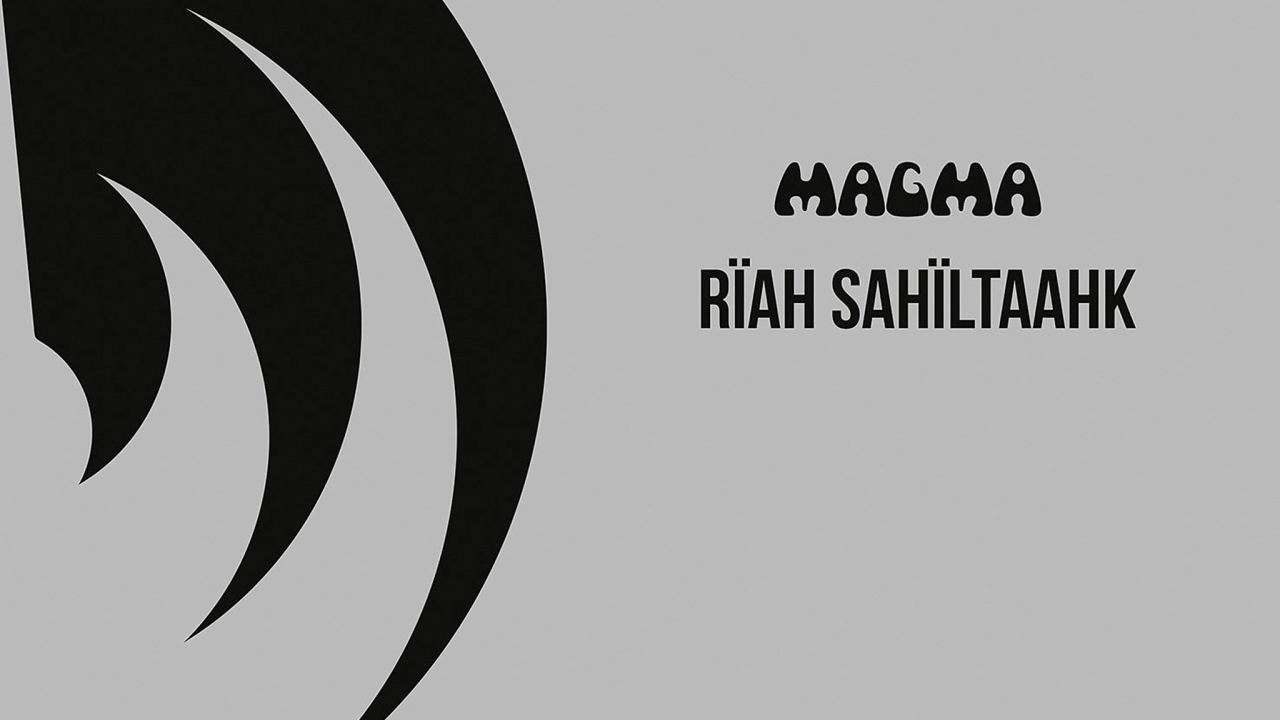You can trust Louder
French avant-jazz/prog explorers Magma are celebrating their 45th anniversary this year.
To mark the event, over the next 18 months the French label Jazz Village will release new music alongside a major vinyl reissue programme of everything from 1970’s debut Magma (since retitled Kobaïa) to 2012’s Félicité Thösz. That programme, under the banner “45 years of creation off the beaten path”, starts here. Rïah Sahïltaahk was originally the whole of side one of the band’s 1971 second album, 1001° Centigrades, and it’s transformed here into a brand new work.
The first difference to note is that there is no brass, although at various points singer Hervé Aknin effects a series of vocal parps. There are gaps between tracks now, and that has led to a more fundamental loss of fluidity. But also missing is a certain energy that is the inevitable corollary of youth, as well as a shrill, alien strangeness that might simply be the result of outmoded technologies being employed.
These changes, of course, will only be discerned by Magma aficionados. Newbies will simply delight in the madcap music. Some call it psych, but it’s more jazzy than that – needless to say, an experimental, out-there form of jazz (Vander loves John Coltrane). Watseï Kobaïa features Aknin’s near-operatic baritone, and in tandem with co-singer Stella Vander, there are shades of Can’s Damo Suzuki’s gabbling in tongues. The keyboards are noodly, and there is a Zappa/Mothers sense of sardonic invention.
On Di Mahntër Sahïltaahk, the double-vocal delivery is almost comical, which somewhat reduces the air of historical import. _Süri Sï Toïdo _is simultaneously oriental and jazzy, with bewildering changes as the musicians pursue their own pretzel logic. Mem Loïlë is like listening to a musical on acid. (Is that a 17⁄5 rhythm? Quite possibly.) Wöleï sounds like The Fifth Dimension in hell.
To some, these will be tuneless free-form irritants; to others, the very essence of innovative music-making. During Bradïa Ëtnah there is the sound of panting - to denote breathless invention, perhaps, or maybe it’s a joke about their age. Ün Zoïn Glaö (the titles are umlaut-fests) is all piano fury and discord, and percussion so random you think: surely that is unrepeatable. But Magma do indeed return to the scene of the musical crime, and they do so with impressive gusto and verve.
Why do they do it? To prove they still can? To keep pace with their pioneering, adventurous selves? Either way, consider the job more or less done.
Sign up below to get the latest from Prog, plus exclusive special offers, direct to your inbox!
Paul Lester is the editor of Record Collector. He began freelancing for Melody Maker in the late 80s, and was later made Features Editor. He was a member of the team that launched Uncut Magazine, where he became Deputy Editor. In 2006 he went freelance again and has written for The Guardian, The Times, the Sunday Times, the Telegraph, Classic Rock, Q and the Jewish Chronicle. He has also written books on Oasis, Blur, Pulp, Bjork, The Verve, Gang Of Four, Wire, Lady Gaga, Robbie Williams, the Spice Girls, and Pink.


